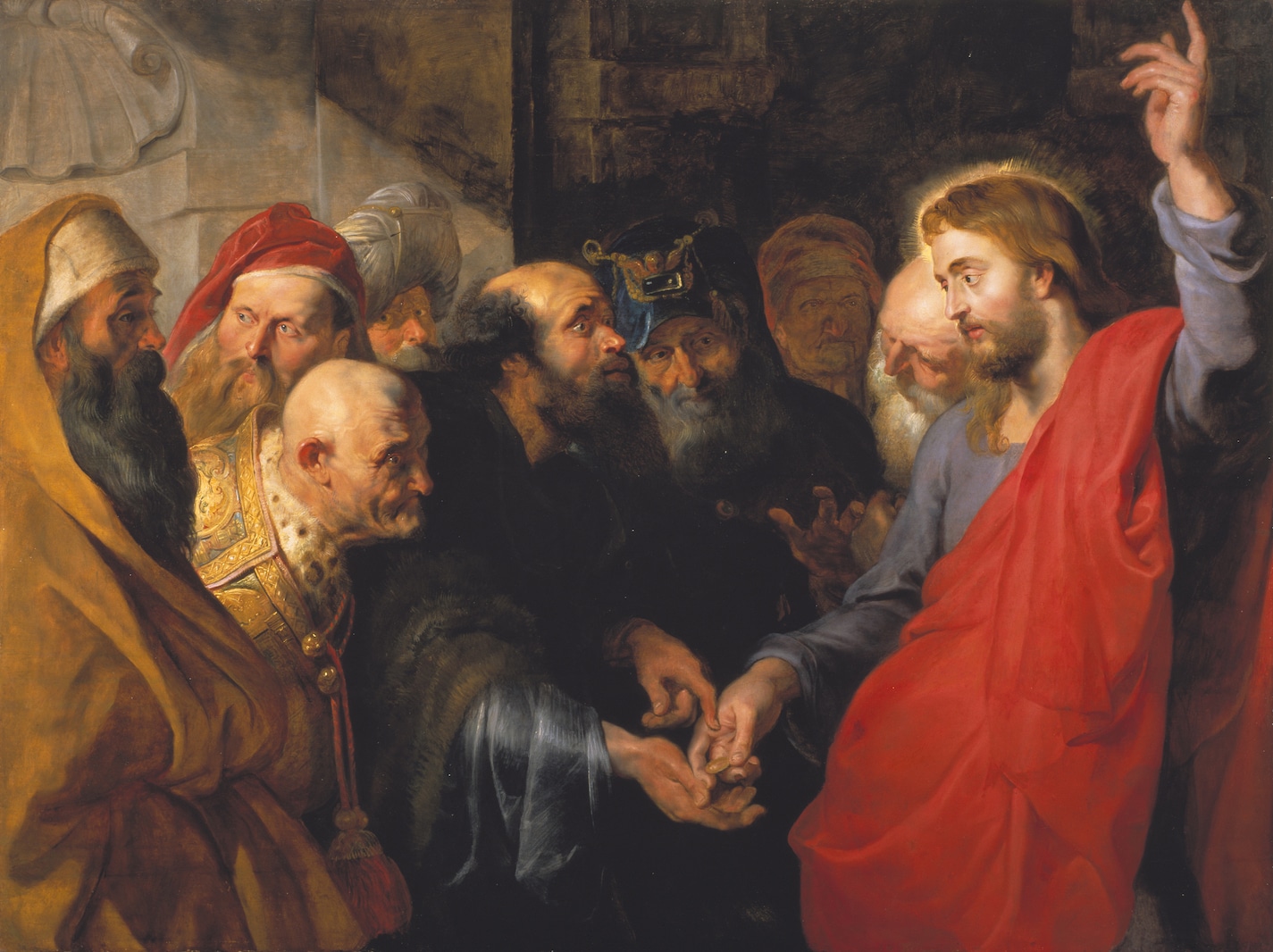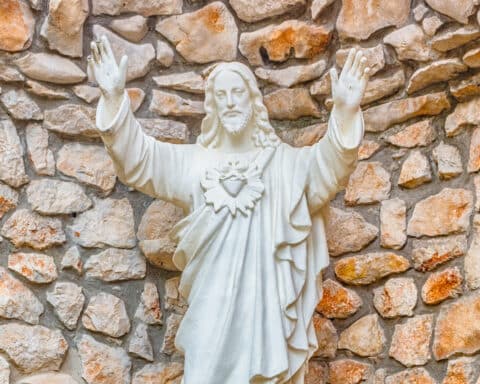Note that the Pharisees and Herodians were plotting against Jesus. This is not a friendly encounter. These people are not seeking the truth. That’s why Jesus calls them “hypocrites” (cf. Mt 22:18).
If Jesus dismisses the legitimacy of the census tax, he risks trouble with the occupying Romans. If he accepts its legitimacy, he risks losing credibility with some of his more ardent, nationalistic followers. That’s the trap. They think they have him. This is but one of several arguments Jesus had with his opponents those final few days before his crucifixion. Jesus’ horizons at this point are dark.
It’s a clever evasion. Even the slyest politician would be impressed. What image is on the coin? Caesar’s? Very well, let him have it. I wouldn’t be surprised if even his hypocritical interlocutors smiled at that one. But clever debate is not all that’s going on here. All the arguing would end soon enough (cf. Mt 22:46). Violence would soon be required. Jesus is not trying to escape it; rather, he’s bearing witness to the truth. He’s inviting anyone who’d listen to consider the bigger picture. He’s talking about what belongs to God (cf. Mt 22:21).
Which, of course, is everything. All kingdoms become the kingdom of God and his Christ (cf. Rev 11:15). That’s what the believer knows. It’s a wisdom granted by faith, to know “the plan of the mystery hidden from ages past in God” (Eph 3:9). That’s the eternal perspective granted to believers. That’s what gives us courage in a frightful world, the strength to bear witness, like when John, on the Lord’s Day and in the Spirit, was granted to see the final triumph of God (cf. Rev 1:10). It’s a vision that steeled him.
Making proper use of things
It’s a vision that, in turn, grants us the wisdom to know how to make proper use of things. Under no circumstances is Jesus saying that there are areas of life wherein God does not rule, where his truth is irrelevant, where it’s safely sidelined. He is not saying that God doesn’t care about what you do Monday through Friday, what line of work you’re in or what sort of decisions you make. Everything you or I do is subject to God’s truth; everything we do will be judged by him. Jesus is not carving out a safe space for you to be worldly. Rather, he’s inviting you to think about how you should creatively use the things of this world — even things belonging to Caesar — for the good and glory of the kingdom of God.
| October 22 – 29th Sunday in Ordinary Time |
|---|
|
Is 45:1, 4-6 Ps 96:1, 3, 4-5, 7-8, 9-10 1 Thes 1:1-5 Mt 22:15-21 |
The Christian owes no one anything except love (cf. Rom 13:8). The Christian is called to make friends with things like wealth to build up the kingdom of God (cf. Lk 16:9). Of your work, your leisure, your spending, your consumption, then, what of it is ordered to the kingdom of God? That is, what of the things of your daily life are used for the glory and purpose of God? Or are the things of your life used for your glory instead? Are you as uncreative as Jesus’ opponents, unable to think of ways worldly things may glorify Christ? Do you think it’s a zero-sum game, that you must at all times act worldly in one place and faithfully in another?
The Christian mustn’t escape the world. Neither must the Christian allow herself or himself to be divided, mistakenly thinking there are moments in life it’s okay not to think and act like a Christian. Rather, we Christians must realize we are in a predicament much like Our Lord’s. We too are sometimes surrounded by opponents plotting against us — not seeking the truth but only to trip us up. We too are given the things of Caesar and asked what we make of it.
This is why we must pray for the faith to be as clever and detached as Jesus was in that moment, with our eyes so focused on the kingdom of God that we freely and ungreedily give the coin back. For we care more about the things of God. Because our treasure we know is in heaven.





